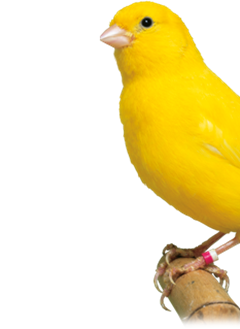Bird Care
Bird Health
Is your bird ill?
If your bird is frequently fluffing up its feathers or has duller eyes than usual it may be ill. Your bird may also sleep longer than usual with its head tucked under a wing or huddled up in a corner. As soon as you notice these signs, consult your vet who will be able to diagnose and treat the problem at an early stage.
Beaks and claws
Overgrown beaks and claws can sometimes cause discomfort and should be kept in check. You should seek expert advice from your vet on how to maintain your bird's beak and claws.
Chewing
Some birds (budgies in particular) often chew their sand sheets or other parts of their cages and may even attack the fixtures and fittings in the room when let out of their cage. While this is a normal and instinctive reaction, it can be destructive to the furnishings in your home. Providing your bird with a harmless chewing object such as a piece of softwood or a twig from a fruit tree may help satisfy your bird's need to chew. Excessive chewing can also be the result of a lack of grit in the diet. Many kinds of birds, include cage and aviary species will instinctively eat particles of grit. Some grit particles dissolve in the stomach and can provide a valuable source of calcium and trace minerals, they are known as soluble grit. Some grits like sand for example, remain as hard particles in the gizzard and are known as insoluble grit. Some studies in poultry suggest that insoluble grit helps birds digest their foods better, but there is no evidence that this is true in pet birds.
